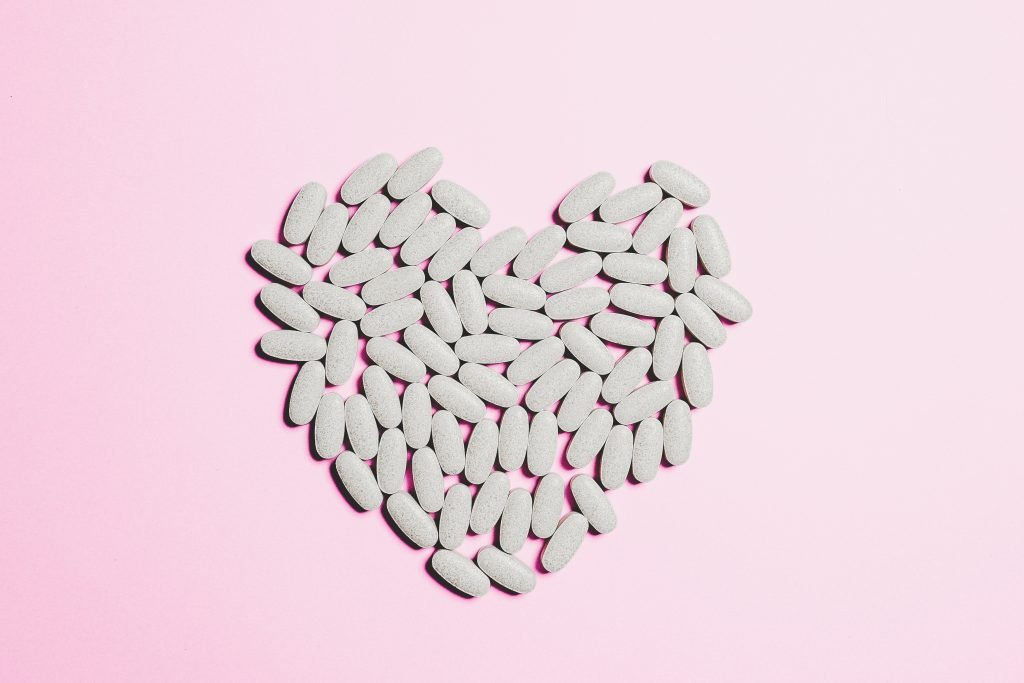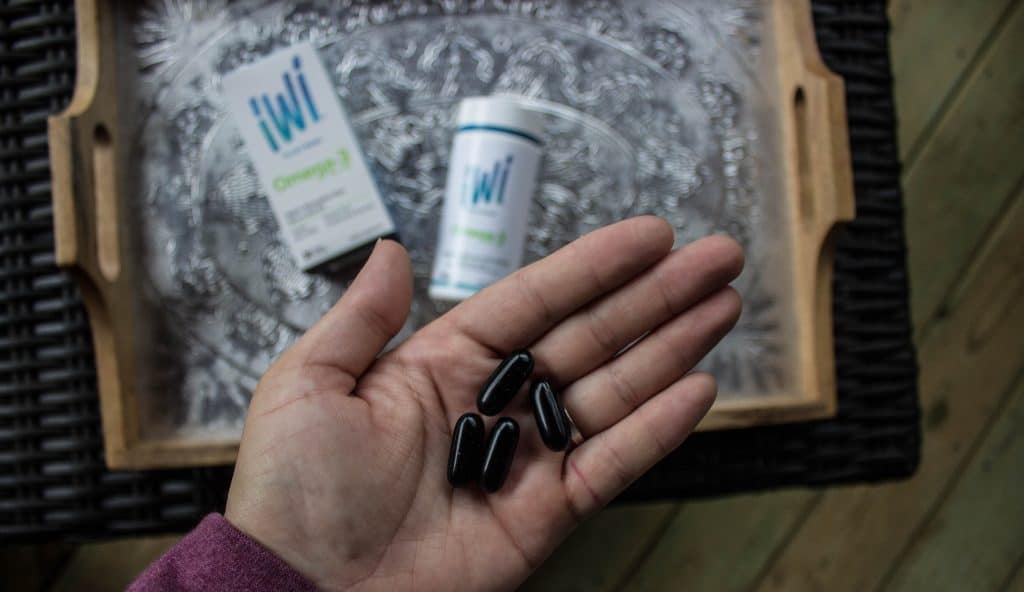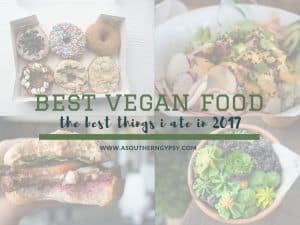This post may contain affiliate links. Please see our disclosure.

Vegan Supplements & What You Need to Know
One of the things that most people are concerned about when going vegan or starting a plant-based diet is where they are going to get the nutrients they need? Aren’t all vegans about to fall over and die at any given moment due to a lack of vitamins and minerals? While I am happy to report that, no, we are not about pass out due to eating plants – there are definitely still some things to consider. Just like we take vitamins on an omnivorous diet, we can also take vitamins on a herbivorous diet as well just to give us a boost.
Being a vegan doesn’t have to be tricky, and in return, this way of living can be extremely rewarding. As well as following a plant-based diet that does not harm animals and improves one’s health, a vegan can sit comfortably knowing that the food they eat does not have as much of a negative impact on the environment. Global climate change is very real, so we all need to do what we can to reduce our impact on the world we live in.
Whether you are a vegan or not, being environmentally aware and living a sustainable life is important. Cutting out major parts of your diet may benefit your health and the world around you, but it should be done with care. If you are a vegan, then there are a number of supplements you may want to take to make up for the elements you have cut out of your diet. However, it is important to understand where your supplements come from and how sustainable they are. If you would like to learn more, here are four things you should know about vegan supplements and sustainability.
The Vitamins You Should Take
Understanding the vitamins that you need to take as a vegan is a vital part of living a healthy vegan lifestyle. The first supplement that you should take is vitamin B12. This vitamin is essential for your brain health, red blood cell production and a healthy nervous system. This vitamin can be produced synthetically via fermentation in a laboratory.
The next supplement you need to take is vitamin D3. This is essential for your immune system, nervous system and bone and brain health. This vitamin can be found in small amounts in mushrooms, tofu and plant-based milks and can be produced sustainably via Lichen.
Finally, you need to make sure you are consuming enough EPA and DHA, which are two of the three essential omegas that contribute the heart, vision and brain health, and can be made using algae.
Omegas are typically consumed through fish oil, but we don’t actually need fish oil. We need Omega-3 which fish get from eating algae. So, what we really need is the algae. Just as it is more sustainable to eat the plants we feed animals directly instead of processing them through the animals, it is much more sustainable to eat algae directly than depleting the oceans of our fish for something we could get in a much more humane and sustainable way.

Reasons You Should Take Them
As mentioned previously, you need to take certain supplements as a vegan to protect the health of vital organs and functions in the body. Without sufficient amounts of vitamin B12, D3 and EPA and DHA, plus iron, iodine and calcium (and other animal-derived nutrients), you will be putting yourself at risk of a number of health issues.
Fortunately, these nutrients exist as supplements and there are many ways to develop these supplements sustainably. If a vegan eats a varied, wholesome diet alongside taking these essential nutrients in supplement form, then they will put themselves at less risk of developing health issues and will feel healthier and more alert in return. Research can make things confusing, so it may be worth talking to your doctor and/or a nutritionist to make things clear.
Know Where They Come From
When it comes to understanding where a supplement comes from, it can get confusing, especially when you are trying to figure out whether it is sustainable or not. Although there are a number of vitamins and minerals that are acquired through consuming animal products, there are many cruelty-free alternatives out there that can be used to create the daily supplements that a vegan will need.
If you want to know where the supplements you take come from, then you should do your research into the product you are looking at purchasing. To save you the hassle, at Future Kind, you can browse a wide range of supplements made specifically for vegans, so you can have peace of mind knowing that the ones you come across are cruelty-free and sustainable.
Make Sure They Are Vegan
The main reason many people become vegan is to protect animals from the suffering that they have to go through in order to produce animal products. Whether it is meat, eggs or dairy, if an animal was required to produce the product, then it is likely that suffering was involved. Although animal products contain essential compounds required to live a healthy life, consuming them can actually have a negative impact on your health.
Fortunately, supplements can be taken to make up for this, but to make your vegan lifestyle worthwhile, you need to make sure that they have been produced through non-animal sources. This is important to remember because many of the supplements a vegan should take are those that they lack due to not eating animal products, so animals may be used as a source.
There are many health and environmental benefits to living a vegan lifestyle, but when you cut something out of your diet, you need to understand how to make up the nutrients you will be lacking. If you take supplements to make up for the ones you don’t consume through animal products, then having a full understanding of where they come from and the impact that they have on the environment is vital, whether that is something you are or are not concerned about.
- 9 Weird Things To Do In Dublin, Ireland - April 13, 2024
- 14 Weird Things To Do In Indianapolis, Indiana - April 13, 2024
- Bird Tourism: Getting Started - February 29, 2024





This is AWESOME! I had a phase where I tried to take gnarly fish oil everyday in liquid form – it was AWFUL, and gross. This seems like such a wonder alternative for anyone trying to add more nutrients to their diet. Thanks for the tip!
Really interesting review! I have taken fish oil for years after a prescription medication damaged my liver causing me issues in processing cholesterol. So I take fish oil to lower my cholesterol (and not have to resort to MORE prescriptions like statins). I’m not vegan myself but I am definitely interested in doing what I can to be sustainable and preserve our oceans’ ecosystems. Will be checking this out on Amazon!!
This is a MUCH better way to get Omega-3s since they are vegan and sustainable that’s even better. Although I am not vegan, I definitely don’t shy away from vegan products or food. And sustainable is always important! That’s great that they are planning on coming out with snacks, protein powders, and other food!
This is a fascinating topic! I hadn’t thought about the inability to get Omega 3 without fish oil, so it is ingenious that there are companies out there do the homework and hard work so that vegans don’t miss out on an important nutrient for their diet. I’m not a big supplement fan, but I understand that sometimes your body needs a little help!
Great information here. I’m not vegan but concerned about managing protein for the future. Glad that algae is being used commercially for this. I can’t wait until algae biofuel is available too.
Algee is one of the most renewable resources out there. I always take/took Omega-3 for brain function. I don’t have any hard science for this, but after a week or two on Omega-3, I felt my brain fog just wasn’t so dense.
Great post! I have several friends who would be interested in this. We talk about things like this at lunch. I’ll be sure to pass it along.
I feel like when I take Omega-3 it truly helps with my self-motivation and anxiety. I didn’t really even think about the source of where the fish get their own nutrients and if we can bypass the fish itself. This article really helped me rethink some of the resources I use, and if there are better alternatives, so thank you.
How interesting! I didn’t know that you can get omega-3 from algae! I don’t take omega-3 regularly. With so many health benefits, I think I should start taking it!